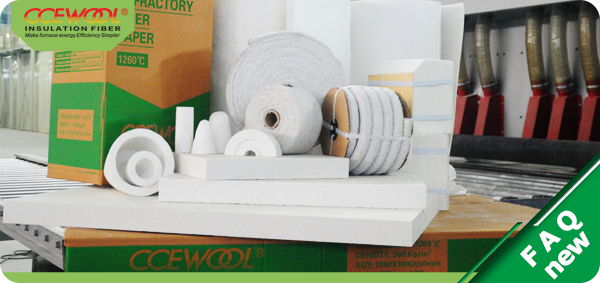Among various thermal insulation materials, soluble fiber is widely regarded as one of the best thermal insulators on the market today due to its unique properties and environmental benefits. Not only does it provide excellent insulation, but it is also eco-friendly and biodegradable, making it a highly valued insulation material in modern industrial and construction fields.
Advantages of Soluble Fiber
Soluble fiber, also known as bio-soluble fiber, is an inorganic fiber made from natural mineral materials that are spun after being melted at high temperatures. Compared to traditional ceramic fiber, the most notable characteristic of soluble fiber is its solubility in bodily fluids, which minimizes its impact on human health. Therefore, it is not only safe and reliable during use but also meets modern environmental standards.
Here are several significant advantages of soluble fiber as a thermal insulation material:
Excellent Thermal Insulation Performance: Soluble fiber has an extremely low thermal conductivity, effectively isolating heat and reducing energy loss, thereby improving the energy efficiency of equipment. Whether in high-temperature industrial equipment or building insulation systems, soluble fiber provides stable insulation.
Eco-friendly and Safe: Since soluble fiber can dissolve in bodily fluids, its harm to the human body is much lower than that of traditional ceramic fiber. This makes soluble fiber safer during production, installation, and use, aligning with modern environmental requirements, especially in settings with higher health and environmental standards.
Outstanding High-Temperature Performance: Soluble fiber can be used for extended periods in high-temperature environments, withstanding temperatures of up to 1200°C or more. This high-temperature stability makes it widely applicable in various industrial furnaces, boilers, and high-temperature equipment, making it an ideal choice for high-temperature insulation.
Excellent Mechanical Strength: Soluble fiber is finely processed to achieve good mechanical strength and shock resistance, allowing it to be used in harsh industrial environments without easily breaking. Its flexibility also makes it easy to install and process, adapting to different equipment shapes and sizes.
Easy to Recycle and Degrade: One of the key features of soluble fiber is its environmental friendliness. It is not only more environmentally friendly during production but is also easy to recycle and degrade after its service life, reducing its environmental impact. In today's pursuit of sustainable development, soluble fiber is undoubtedly the green choice among thermal insulation materials.
Wide Applications of Soluble Fiber
Thanks to its superior insulation performance and environmental benefits, soluble fiber is widely used in various fields. In the industrial sector, soluble fiber is extensively used in high-temperature furnaces, petrochemical equipment, and power plant boilers, where efficient insulation is required. In the construction sector, soluble fiber is used in exterior wall insulation systems, roof insulation, and floor insulation, providing excellent thermal insulation and fire protection. Additionally, soluble fiber is increasingly used in household appliance manufacturing, the automotive industry, and aerospace due to its lightweight, efficiency, and safety.
As one of the best thermal insulation materials on the market today, soluble fiber, with its superior thermal insulation performance, environmental safety, and excellent high-temperature resistance, has become an indispensable insulation choice across various industries.
Post time: Aug-26-2024


